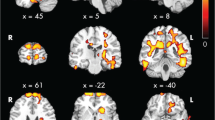Abstract
Background
In adult chronic kidney disease (CKD), metabolic acidosis is associated with diminished cognition, notably executive function (EF). Data from the Chronic Kidney Disease in Children (CKiD) study demonstrate a risk for impairment of EF, a finding associated with heightened blood pressure variability (BPV). We sought to determine whether low serum bicarbonate is also associated with performance on tests of EF in pediatric CKD and to investigate potential interaction with BPV.
Methods
CKiD participants with serum bicarbonate, blood pressure, and selected cognitive measurements available were evaluated. An EF summary score was derived from scores on the Delis-Kaplan Executive Function System, Conners’ Continuous Performance Test, and Digit Span Backwards subtest from the Wechsler Intelligence Scale for Children-IV-Integrated. Parents completed the Behavioral Rating Inventory of Executive Function (BRIEF) to yield a Global Executive Composite (GEC) score. Linear mixed models with bicarbonate and hypertension as predictors and linear regression with bicarbonate and BPV were used to predict EF level.
Results
Data were available for 865 children. Twenty-two percent had low bicarbonate (CO2 ≤ 20 mmol/L) at baseline. On multivariate analysis, there was no relationship between bicarbonate, hypertension, and EF. There was no significant CO2×hypertension interaction found. A significant interaction (p = 0.01) between high CO2 (≥ 26 mmol/L) and BPV was detected in the model with GEC as the EF outcome, indicating that while higher BPV was associated with worse EF in the low and normal CO2 groups, higher BPV was associated with better EF in the high CO2 group.
Conclusions
Our analyses revealed an interaction between one measure of BPV and low bicarbonate on neurocognition in pediatric CKD, suggesting a potential role for control of both bicarbonate and blood pressure in preserving cognition in early CKD. Further research is needed to confirm and further define this association.

Similar content being viewed by others

References
Kovesdy CP, Anderson JE, Kalantar-Zadeh K (2009) Association of serum bicarbonate levels with mortality in patients with non-dialysis-dependent CKD. Nephrol Dial Transplant 24(4):1232–1237
Wu DY et al (2006) Association between serum bicarbonate and death in hemodialysis patients: is it better to be acidotic or alkalotic? Clin J Am Soc Nephrol 1(1):70–78
Li F et al (2011) Acidosis leads to brain dysfunctions through impairing cortical GABAergic neurons. Biochem Biophys Res Commun 410(4):775–779
Song R et al (2011) Acidosis and alkalosis impair brain functions through weakening spike encoding at cortical GABAergic neurons. J Neurol Sci 304(1–2):122–126
Dobre M et al (2018) Serum bicarbonate concentration and cognitive function in hypertensive adults. Clin J Am Soc Nephrol 13(4):596–603
Hooper SR et al (2011) Neurocognitive functioning of children and adolescents with mild-to-moderate chronic kidney disease. Clin J Am Soc Nephrol 6(8):1824–1830
Mendley SR et al (2015) Duration of chronic kidney disease reduces attention and executive function in pediatric patients. Kidney Int 87(4):800–806
Lande MB et al (2016) Association of blood pressure variability and neurocognition in children with chronic kidney disease. Pediatr Nephrol 31(11):2137–2144
Furth SL et al (2006) Design and methods of the Chronic Kidney Disease in Children (CKiD) prospective cohort study. Clin J Am Soc Nephrol 1(5):1006–1015
Schwartz GJ et al (2012) Improved equations estimating GFR in children with chronic kidney disease using an immunonephelometric determination of cystatin C. Kidney Int 82(4):445–453
Flynn JT et al (2008) Blood pressure in children with chronic kidney disease: a report from the Chronic Kidney Disease in Children study. Hypertension 52(4):631–637
Hastie CE et al (2013) Long-term and ultra long-term blood pressure variability during follow-up and mortality in 14,522 patients with hypertension. Hypertension 62(4):698–705
Yano Y et al (2014) Long-term blood pressure variability throughout young adulthood and cognitive function in midlife: the Coronary Artery Risk Development in Young Adults (CARDIA) study. Hypertension 64(5):983–988
Boedtkjer E et al (2016) Extracellular HCO3- is sensed by mouse cerebral arteries: regulation of tone by receptor protein tyrosine phosphatase gamma. J Cereb Blood Flow Metab 36(5):965–980
Setiadi A et al (2018) The role of the blood-brain barrier in hypertension. Exp Physiol 103(3):337–342
de Leeuw FE et al (2002) Hypertension and cerebral white matter lesions in a prospective cohort study. Brain 125(Pt 4):765–772
Shimoji K et al (2014) Diffusional kurtosis imaging analysis in patients with hypertension. Jpn J Radiol 32(2):98–104
Li X et al (2016) Disrupted white matter structure underlies cognitive deficit in hypertensive patients. Eur Radiol 26(9):2899–2907
Rasbury WC, Fennell RS 3rd, Morris MK (1983) Cognitive functioning of children with end-stage renal disease before and after successful transplantation. J Pediatr 102(4):589–592
Brouhard BH et al (2000) Cognitive functioning in children on dialysis and post-transplantation. Pediatr Transplant 4(4):261–267
Duquette PJ et al (2007) Brief report: intellectual and academic functioning in pediatric chronic kidney disease. J Pediatr Psychol 32(8):1011–1017
Acknowledgments
Data in this manuscript were collected by the CKiD prospective cohort study (CKiD) with clinical coordinating centers (Principal Investigators) at Children’s Mercy Hospital and the University of Missouri—Kansas City (Bradley Warady, MD) and Children’s Hospital of Philadelphia (Susan Furth, MD, PhD), Central Biochemistry Laboratory (George Schwartz, MD) at the University of Rochester Medical Center, and data coordinating center (Alvaro Muñoz, PhD) at the Johns Hopkins Bloomberg School of Public Health. The CKID website is located at http://www.statepi.jhsph.edu/ckid.
Funding
CKiD is funded by the National Institute of Diabetes and Digestive and Kidney Diseases, with additional funding from the National Institute of Child Health and Human Development, and the National Heart, Lung, and Blood Institute (U01-DK-66143, U01-DK-66174, U01DK-082194, U01-DK-66116). Dr. Harshman is funded by the National Institute of Diabetes and Digestive and Kidney Diseases (K23DK110443).
Author information
Authors and Affiliations
Corresponding author
Ethics declarations
Conflict of interest
The authors declare that they have no conflicts of interest.
Additional information
Publisher’s note
Springer Nature remains neutral with regard to jurisdictional claims in published maps and institutional affiliations.
Rights and permissions
About this article
Cite this article
Harshman, L.A., Kogon, A.J., Matheson, M.B. et al. Bicarbonate, blood pressure, and executive function in pediatric CKD—is there a link?. Pediatr Nephrol 35, 1323–1330 (2020). https://doi.org/10.1007/s00467-020-04507-5
Received:
Revised:
Accepted:
Published:
Issue Date:
DOI: https://doi.org/10.1007/s00467-020-04507-5



